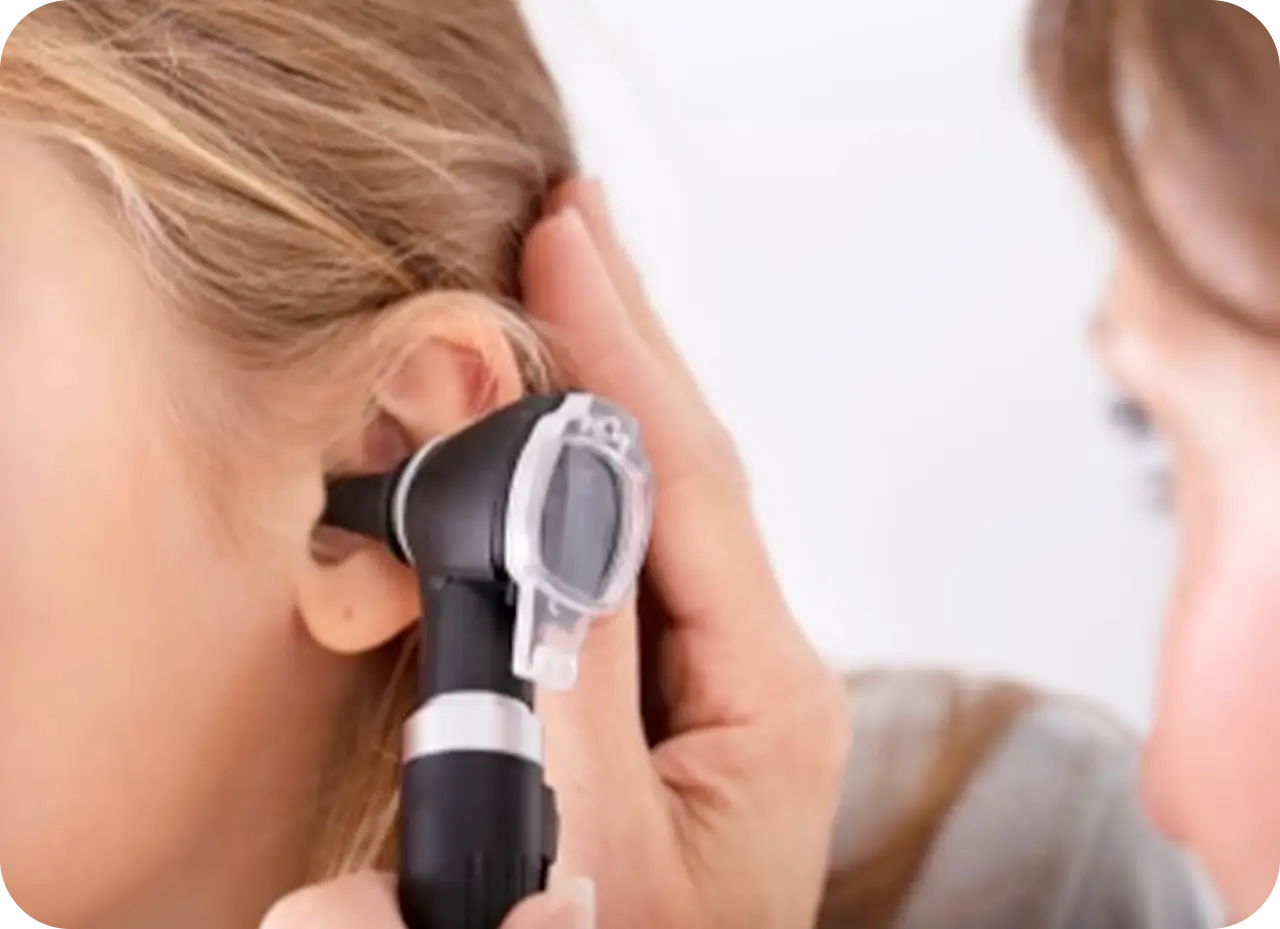Hearing loss can affect many areas of daily life. For some people, it may be severe enough to be considered a disability, making them eligible for disability benefits. If you’re unsure whether your hearing loss qualifies or if you’re eligible for benefits, this article will help you recognize key signs and guide you on your next steps.
What Qualifies Hearing Loss as a Disability?
First, it's important to understand when hearing loss is considered a disability by law. The Social Security Administration (SSA) provides guidance on the definition of disability, which includes hearing impairments that severely limit an individual's ability to work or perform activities of daily living.
To qualify for disability benefits, hearing loss must meet specific criteria outlined by the SSA, such as:
-
Severe hearing loss in both ears: The impairment must be significant enough to prevent you from understanding speech without the aid of hearing aids or other devices.
-
Impact on work performance: The hearing loss must interfere with your ability to perform job-related tasks, particularly if your work requires communication or understanding sounds.
-
Other related impairments: The SSA also considers whether hearing loss is accompanied by other health conditions that further limit your ability to function.
If your hearing loss meets these standards, you may be eligible for disability benefits. However, the determination is not always straightforward, and you’ll need to provide medical evidence to support your case.
Signs That You May Have Lost Your Disability Hearing
The disability hearing is an essential part of determining whether you qualify for benefits. After your hearing, there are several signs that may indicate you didn't win your case:
1.The Judge Didn’t Appear Engaged
If the judge appeared disengaged during your disability hearing, it could be a sign that your case is not being taken seriously. Typically, a judge will ask detailed questions about your medical condition, how it affects your daily life, and your ability to work. If the judge didn't ask many questions or seemed uninterested in your testimony, it could indicate that they already have doubts about the strength of your case.

A lack of engagement might also suggest that the judge didn’t find your medical evidence compelling or that they don’t believe your hearing loss is severe enough to qualify as a disability. While it's not always a clear indication of a negative outcome, it can be a red flag that your claim isn’t being considered favorably. If you notice this, it’s a good idea to speak with your attorney to discuss your options moving forward, including the possibility of appealing the decision if it’s unfavorable.
2. Your Medical Evidence Was Overlooked
If the judge didn’t seem to give much attention to your medical evidence, it could be a sign that your case is in trouble. In hearing loss cases, medical records like audiograms, doctor’s reports, and specialist opinions are crucial. These documents provide the necessary proof of the severity of your condition and its impact on your ability to function. If the judge didn’t ask questions about these records or didn’t discuss them in detail, it may suggest that they didn’t consider your medical evidence strong enough to support your claim.
A lack of focus on your medical evidence could mean that the judge doesn’t view it as persuasive or that it doesn’t meet the required standards for qualifying for disability benefits. If this happens, it may be a good idea to consult with your attorney to ensure all necessary documentation was presented properly and consider options for appeal if the decision turns out unfavorable.
3. The Hearing Was Shorter Than Expected
If your disability hearing was unusually brief, it could be a sign that the judge has already formed a quick opinion about your case. Typically, hearings are designed to allow both sides—your attorney and the judge—to fully explore the details of your condition, how it affects your life, and your ability to work. A longer hearing allows for a thorough review of medical records, testimonies, and vocational evidence.
However, if the hearing was much shorter than anticipated, it may suggest that the judge didn’t feel the need to delve deeply into the evidence or didn’t find your arguments compelling enough to warrant further discussion. A quick hearing might indicate that the judge has already made a decision, possibly leaning toward denying your claim. While it’s not always a definitive sign of a loss, it’s an indicator that the judge may not find your case strong enough to proceed with a more detailed examination.
If your hearing was unexpectedly short, it’s important to stay in touch with your attorney, who can help you assess the situation and plan for potential next steps, including the possibility of appealing the decision if it’s unfavorable.
4. Limited Discussion of Vocational Issues
Vocational issues play a significant role in disability hearings, particularly when it comes to evaluating whether your hearing loss prevents you from working. If the judge didn’t spend much time discussing your work history, job skills, or how your hearing impairment affects your ability to perform tasks, it could be a sign that they don’t view your disability as severe enough to prevent employment.
In most cases, the judge will explore how your hearing loss impacts your ability to perform past work or any other types of work that may be available. If there was little to no discussion on this front, it might suggest that the judge believes you can still work in some capacity, even if your hearing loss is significant. This could point to a potential denial, especially if the judge feels you retain enough residual functional capacity to perform some form of employment.
A limited focus on vocational issues could also indicate that the judge has already decided that you are not disabled according to the SSA's definition. If you notice that this part of the hearing was brushed over, it’s important to consult with your attorney to understand the implications for your case and consider options for further legal action if needed.
5. The Judge Didn’t Seem Interested in Your Personal Testimony
Your personal testimony is a key part of the disability hearing, as it allows you to explain firsthand how your hearing loss impacts your life. If the judge didn’t seem interested in your testimony or didn’t ask follow-up questions about how your condition affects your daily activities, it could be a concerning sign.
Judges typically want to understand how your disability limits your ability to function, whether it's in your personal life or at work. A lack of engagement during your testimony may suggest that the judge does not find your account convincing or relevant to the case. If the judge didn’t ask about specific examples of how your hearing loss interferes with tasks like communication, work responsibilities, or social interactions, it could indicate that they don’t see your condition as severely limiting.
This lack of interest could also suggest that the judge has already formed an opinion about your case and isn’t interested in hearing more. While it doesn’t guarantee a loss, it’s an indicator that your testimony may not have been persuasive enough to influence the judge's decision. If you experience this during your hearing, it’s crucial to review your testimony with your attorney, who can help assess the situation and guide you on whether to appeal or submit additional evidence if needed.
What If You Lose Your Disability Hearing?
Losing a disability hearing can be frustrating, but it's not the end of the process. If you lose your hearing, you still have options for challenging the decision. The first step is to request a reconsideration, which means another set of SSA reviewers will take another look at your case, including your medical evidence and vocational information.
If this doesn’t work, you can appeal the decision by asking the Appeals Council to review your case. The Appeals Council will examine the hearing’s outcome and check if any legal errors were made. They can either uphold the decision, send it back for a new hearing, or even reverse the decision in your favor.
If the Appeals Council doesn’t rule in your favor, you may be able to request a new hearing with the help of additional evidence or updated testimony. This gives you another chance to present your case in front of a judge. At any point in this process, it's wise to work with an experienced disability attorney, as they can help you gather the necessary documentation and guide you through the complexities of the appeals process.
With the right support and new evidence, you can continue fighting for your disability benefits, even after losing the initial hearing.
Conclusion
If your disability hearing didn’t go as expected, don’t give up. There are still options available, like appeals or submitting additional evidence, to help you move forward with your case. With the right legal support, you can determine the next steps to take.
At the same time, if you're looking for a way to maintain your ear health, Bebird’s ear cleaning kit is a great option.
Designed for ease and effectiveness, it’s a valuable tool for those looking to take better care of their ears. To learn more about how Bebird’s ear cleaning kit can help you, check out Bebird.
See also
A Guide to Gauge Sizes for Ears: What You Need to Know
The History of the WaxVac Ear Cleaner: How It Changed Ear Care
















Leave a comment
All comments are moderated before being published.
This site is protected by hCaptcha and the hCaptcha Privacy Policy and Terms of Service apply.